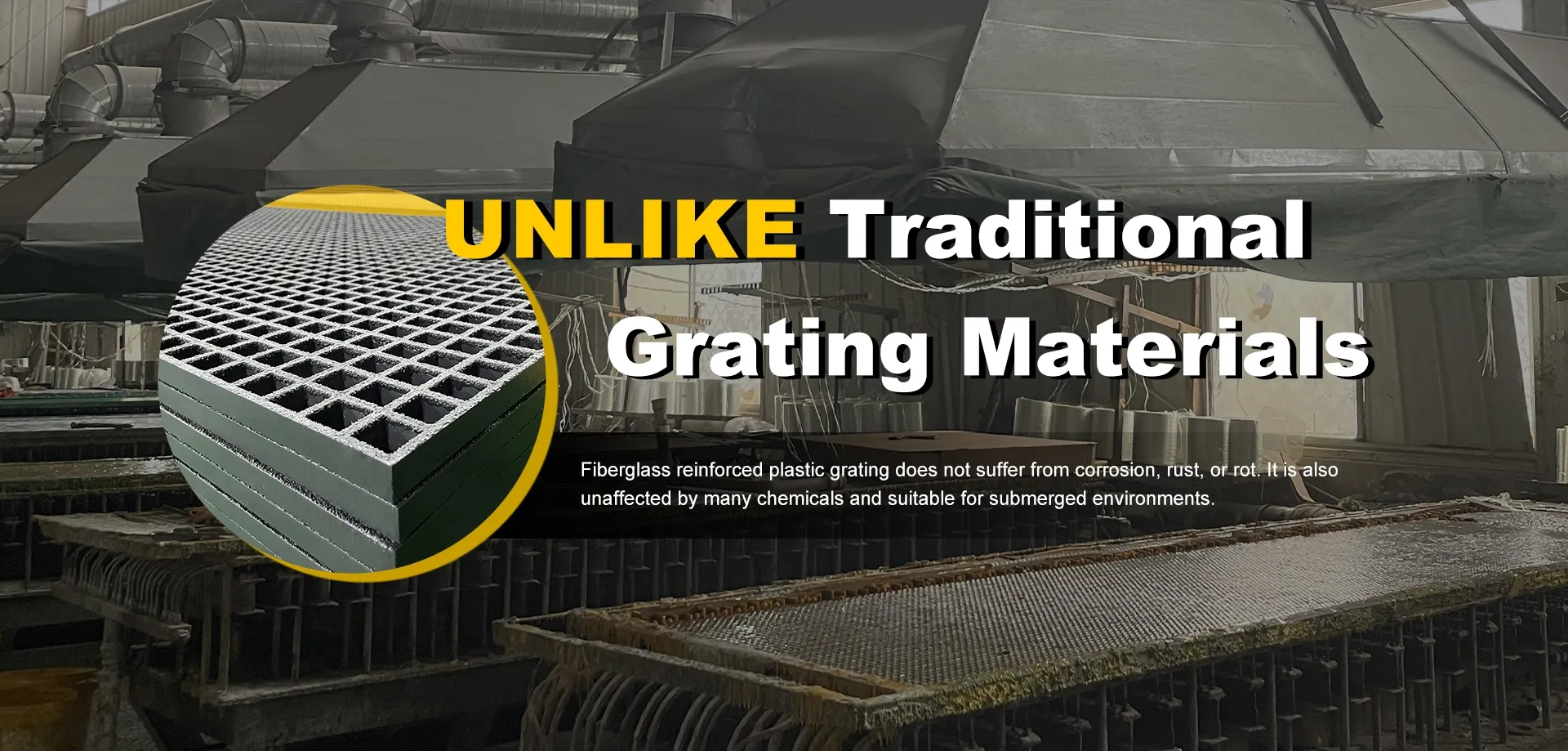loading...
- No. 9, Xingyuan South Street, Dongwaihuan Road, Zaoqiang County, Hengshui, Hebei, China
- admin@zjcomposites.com
- +86 15097380338
- Welcome to visit our website!
Durable Fiberglass Mesh Grating Solutions for Enhanced Strength and Versatile Applications in Construction
The Versatility and Benefits of Fiberglass Mesh Grating
Fiberglass mesh grating is an innovative material that has gained significant traction in various industries due to its remarkable properties and versatility. This composite material, made from fiberglass strands and resin, offers a lightweight yet durable alternative to traditional metal grating. As industries constantly seek materials that improve safety, efficiency, and cost-effectiveness, fiberglass mesh grating stands out for several compelling reasons.
The Versatility and Benefits of Fiberglass Mesh Grating
Another significant benefit of fiberglass mesh grating is its lightweight nature. Fabricators and engineers often have to balance strength and weight when designing structures or platforms. Fiberglass grating provides a solution, allowing for ease of installation and reduced structural support requirements. This advantage is particularly beneficial in industries like construction and aerospace, where minimizing weight is critical to performance and safety. The ease of handling and installation also means that labor costs can be reduced, as fewer personnel are required for installation tasks.
fibreglass mesh grating

In addition to its practical benefits, fiberglass mesh grating also offers excellent slip resistance. The surface of the grating can be textured or treated to provide enhanced grip, making it a safe option for walkways, platforms, and other surfaces where foot traffic is common. This safety feature is especially important in environments where spills and moisture can create hazardous conditions. By utilizing fiberglass mesh grating, companies can ensure a safer workplace, which further enhances employee productivity and morale.
Fiberglass grating is also highly customizable, making it suitable for a wide range of applications. It can be manufactured in various configurations, including different mesh sizes and thicknesses, to meet specific load-bearing requirements. This versatility extends to aesthetic choices as well; fiberglass grating can be produced in different colors and finishes to match the design preferences of a given project. Whether used in industrial settings, commercial buildings, or residential applications, fiberglass mesh grating can be tailored to fit seamlessly into various environments.
Moreover, the environmental impact of utilizing fiberglass mesh grating is less than that of traditional metal alternatives. The production process can often be more energy-efficient, and the long lifespan of fiberglass helps reduce the frequency of replacements. Additionally, many manufacturers are focusing on sustainability, employing eco-friendly materials and processes, and making fiberglass grating an increasingly green choice for construction projects.
In conclusion, fiberglass mesh grating presents a host of advantages—corrosion resistance, lightweight design, slip resistance, customization options, and a lower environmental footprint—making it a compelling choice for a wide range of industries. As businesses and engineers look to future-proof their projects with reliable and efficient materials, fiberglass mesh grating emerges as a standout solution that combines safety, performance, and sustainability. Whether for industrial, commercial, or residential use, the benefits of this material will continue to drive its adoption in the years to come.
-
Premium FRP Handrail for All ApplicationsNewsAug.29,2025
-
Low Maintenance FRP Mini Mesh Grating ProductsNewsAug.29,2025
-
Innovative FRP Square Tubes for Modern Industrial SolutionsNewsAug.29,2025
-
FRP Water Storage Tanks Wholesale Solutions for Bulk BuyersNewsAug.29,2025
-
FRP Molded Grating Solutions for Diverse Industrial ApplicationsNewsAug.29,2025
-
Construction Advancements Through FRP Pultruded ProfilesNewsAug.29,2025
-
Why Choose FRP Railings, Guardrails, and Handrail Systems?NewsAug.29,2025
